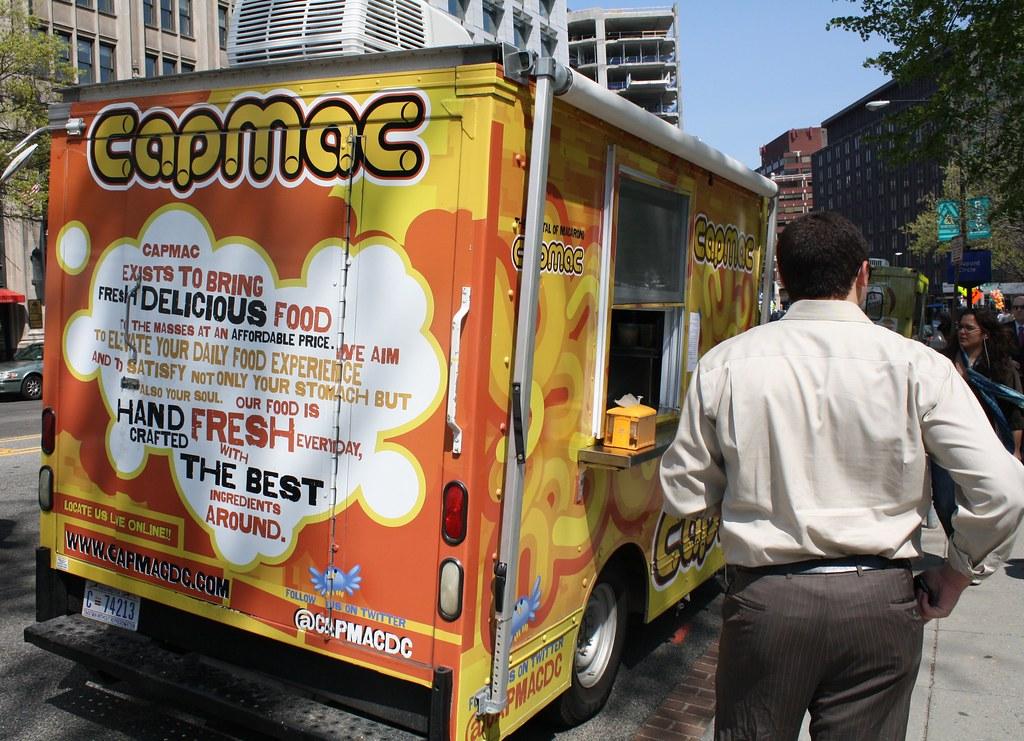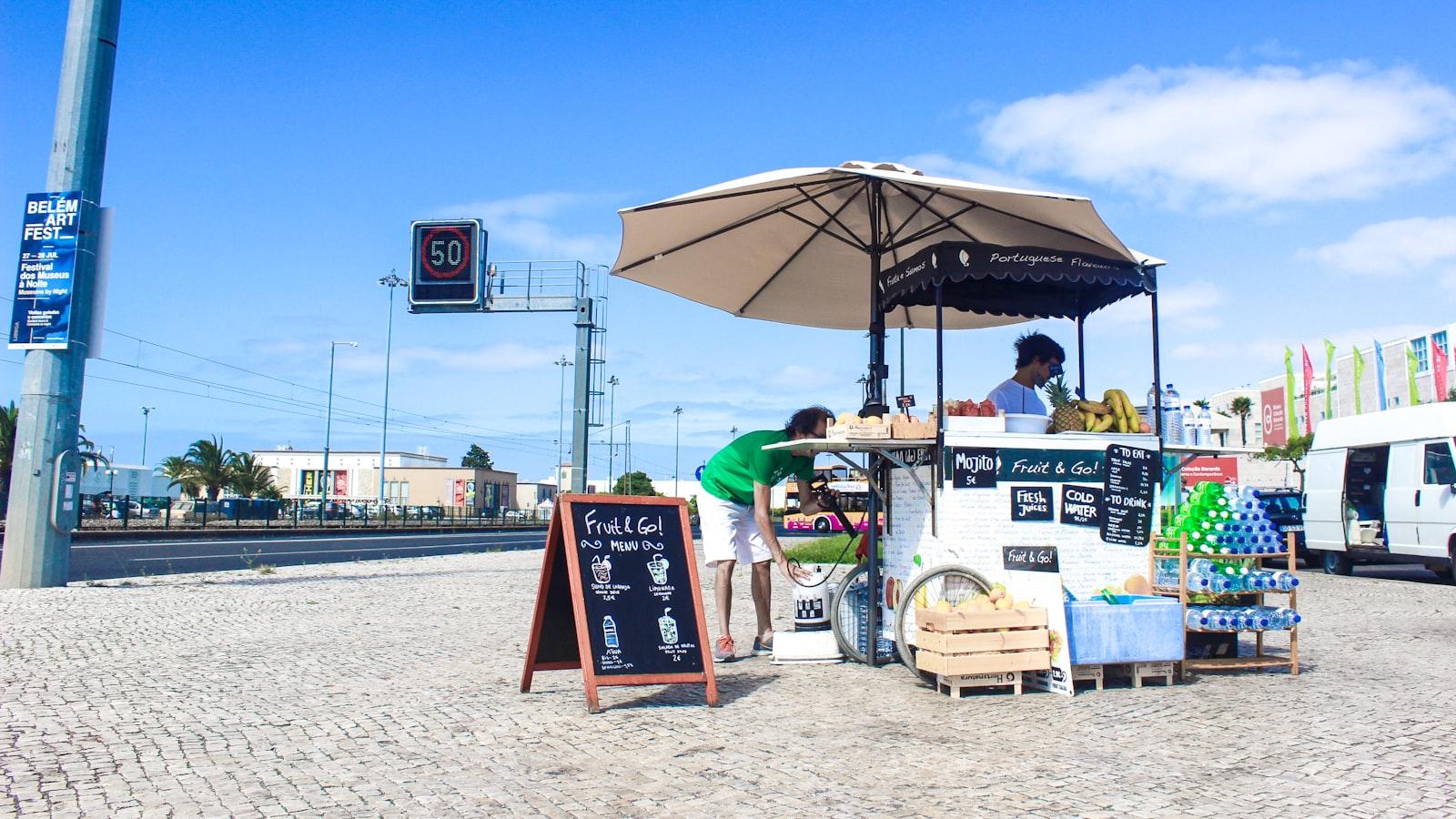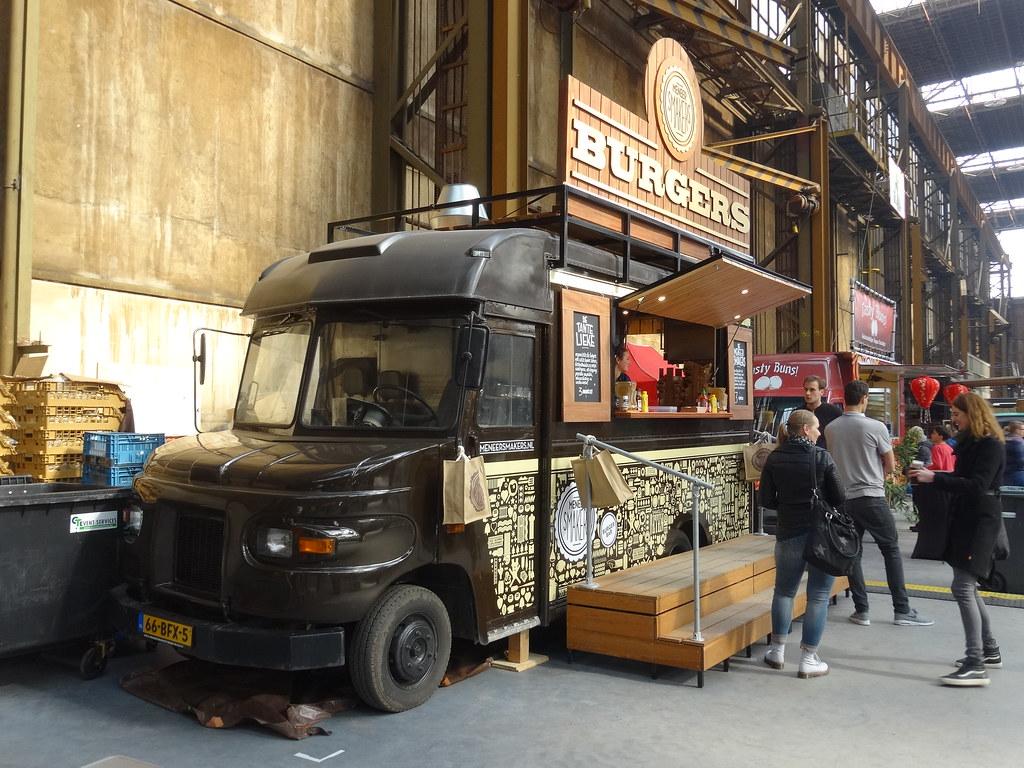Physical Address
304 North Cardinal St.
Dorchester Center, MA 02124
Physical Address
304 North Cardinal St.
Dorchester Center, MA 02124

Have you ever dreamed of owning your own food truck? Wondering how much it would cost to turn that dream into a reality? Well, the answer isn’t as straightforward as you might think. As someone with 15 years of truck driving experience, I can tell you that the cost of a food truck can vary greatly depending on your preferences and needs. From the size and condition of the truck itself, to the types of equipment and permits you’ll need, there are many factors to consider when determining the total cost. In this article, we’ll break down the different aspects of owning a food truck and give you some insights and recommendations to help you make an informed decision. So, let’s get started and crunch those numbers!
can vary significantly based on a multitude of variables that come into play. From the type of cuisine you plan to serve to the equipment and size of the truck, several factors can impact the overall cost of your mobile food business venture.
One key factor that influences the cost of a food truck is the size and condition of the vehicle itself. Purchasing a brand new food truck will definitely cost more than refurbishing a used one. You may also want to consider the size of the truck, as larger trucks tend to come with a higher price tag due to more space and equipment needed.
Another major factor to keep in mind is the type of equipment and appliances you plan to install in your food truck. High-quality appliances like refrigerators, stoves, fryers, and grills can add up quickly in terms of cost. Additionally, specialized equipment for specific cuisines, such as a pizza oven or a soft-serve ice cream machine, can also drive up the overall cost.
Moreover, permits and licenses are essential requirements for operating a food truck legally. The cost of obtaining these permits can vary depending on the location and regulations in your area. It is crucial to do thorough research to understand the permits needed and the associated costs to ensure compliance with local laws and regulations.
Furthermore, branding and customization of your food truck can also impact the overall cost. From exterior wraps to custom logos and designs, personalizing your food truck can help attract customers and create a memorable brand. However, these customization options can come at an additional cost that should be factored into your budget.
In conclusion, the cost of a food truck can vary depending on several factors, including the size and condition of the vehicle, equipment and appliances, permits and licenses, and branding and customization. By carefully considering these factors and doing thorough research, you can better estimate the overall cost of launching and operating a successful food truck business.
When it comes to food trucks, there is quite a variety to choose from. Each type offers its unique menu and ambiance, catering to different tastes and preferences. Let’s take a closer look at some of the most popular types and their price ranges.
Traditional Food Trucks: These are your classic food trucks that serve up a variety of street food like tacos, burgers, and sandwiches. Prices can range from $20,000 to $100,000 depending on the size and equipment of the truck.
Gourmet Food Trucks: These food trucks offer upscale, chef-inspired dishes that are a step above the traditional street fare. Prices for gourmet food trucks can range from $50,000 to $150,000 or more, depending on the level of customization and the quality of ingredients used.
Dessert Trucks: If you have a sweet tooth, dessert trucks are the perfect choice for you. From ice cream to cupcakes to gourmet pastries, dessert trucks offer a wide range of indulgent treats. Prices for dessert trucks typically range from $20,000 to $80,000.
Ethnic Food Trucks: Ethnic food trucks bring the flavors of the world to your doorstep. From Korean BBQ to Lebanese cuisine to authentic Italian pasta, these trucks offer a taste of different cultures. Prices for ethnic food trucks can vary widely, ranging from $30,000 to $150,000.
Healthy Food Trucks: For health-conscious individuals, healthy food trucks are a great option. These trucks offer fresh salads, smoothie bowls, and other nutritious meals on the go. Prices for healthy food trucks typically range from $50,000 to $100,000.
Specialty Food Trucks: Specialty food trucks are niche trucks that cater to specific tastes, such as vegan food, gluten-free options, or specific dietary restrictions. Prices for specialty food trucks can vary depending on the niche market they target.
In my 15 years of truck driving experience, I have come across various types of food trucks, each with its own charm and appeal. It all boils down to personal preference and what suits your taste buds. So, whether you’re seeking a quick bite on a budget or a gourmet experience on wheels, there is a food truck out there for everyone. Just remember, the price range of food trucks can vary greatly, so it’s essential to do your research and find the perfect fit for your needs. Happy food truck hunting!
If you’re considering starting your food truck business, one of the most burning questions you probably have is: “How much does a food truck actually cost?” Well, that really depends on various factors, but let’s break it down for you.
Typically, the can range anywhere from $50,000 to $200,000. This cost includes the vehicle itself, the kitchen equipment, permits, licenses, branding, and any customization you might want to add to make your food truck stand out from the crowd.
Before you dive headfirst into purchasing a new food truck, it’s crucial to do your research and create a detailed budget. Consider all expenses, from the initial investment to the ongoing operational costs, so you can have a clear picture of what to expect.
When I was looking into purchasing my first food truck, I spent countless hours researching different options, comparing prices, and seeking advice from other food truck owners. It was a daunting task, but in the end, it was well worth it to ensure I was making the best decision for my business.
One piece of advice I received during my research was to consider buying a used food truck instead of a new one. While a new food truck might come with all the bells and whistles, a used truck can be more cost-effective and still get the job done.
In conclusion, the can vary significantly, so it’s essential to do your due diligence, create a detailed budget, and explore all options available to you. Remember, every food truck business is unique, and what works for one person might not work for another. So take your time, navigate through the complexities, and make a decision that aligns with your goals and budget.
Starting a food truck business can be an exciting venture, but it’s essential to consider all the additional costs involved apart from just the initial investment in the truck itself. These extra expenses can quickly add up and impact your overall budget. Here are some significant costs to keep in mind:
1. Permits and Licenses:
Before you can start selling your delicious food on wheels, you’ll need to obtain the necessary permits and licenses. This includes health department permits, business licenses, and potentially parking permits depending on your location. The costs for these permits can vary widely, so it’s crucial to research your local requirements thoroughly.
2. Equipment and Supplies:
Equipping your food truck with the right tools and supplies is crucial for serving your customers efficiently. This includes kitchen equipment, serving supplies, and ingredients. Consider the cost of purchasing or renting items like grills, fryers, refrigerators, and serving utensils when planning your budget.
3. Marketing and Advertising:
Promoting your food truck and attracting customers is vital for success. You may need to budget for marketing materials, such as banners, signage, and business cards. Additionally, consider allocating funds for online advertising, social media promotion, and collaborations with local businesses to increase your visibility.
4. Insurance and Maintenance:
Running a food truck comes with its own set of risks, so having insurance coverage is essential for protecting your business. You’ll need liability insurance, vehicle insurance, and potentially workers’ compensation insurance. Additionally, regular maintenance and repairs for your truck should be factored into your budget to keep your operation running smoothly.
5. Commissary Fees:
Many food trucks operate out of a shared kitchen space, called a commissary, where they prepare and store food. Renting space in a commissary can incur monthly fees, so make sure to account for this cost in your budget. Some cities also require food trucks to have a designated commissary, so be sure to check your local regulations.
6. Staff and Labor Costs:
If you plan on hiring employees to help run your food truck, remember to budget for their wages, taxes, and possibly benefits. Labor costs can vary depending on the number of staff members you need and their roles. Consider whether you’ll be hiring part-time or full-time employees and factor in any training expenses.
Starting a food truck business involves more than just buying a truck and hitting the road. By considering these additional costs and budgeting accordingly, you can set yourself up for success in the competitive world of mobile food service. It’s essential to be prepared for these expenses to ensure your business can thrive and grow over time.
When it comes to budgeting and financing your food truck venture, it’s crucial to have a clear understanding of how much it will cost to get started. The cost of a food truck can vary depending on several factors, such as the size of the truck, equipment needed, permits, licenses, and initial supplies. So, let’s delve into the nitty-gritty of food truck costs to help you navigate this exciting yet challenging journey.
One of the most significant expenses you’ll encounter when starting a food truck business is purchasing the actual truck. Food trucks can range from simple, used trucks to brand-new custom-built trucks, with prices starting from around $20,000 and going up to $100,000 or more for a fully equipped, state-of-the-art model. It’s essential to choose a truck that fits your budget while also meeting your specific needs.
In addition to the cost of the truck itself, you’ll need to budget for equipment such as cooking appliances, refrigeration units, and storage space. These items can easily add up, so it’s important to shop around for the best deals and consider buying used equipment to save money. Remember, you can always upgrade your equipment as your business grows and prospers.
Don’t forget about the necessary permits and licenses required to operate a food truck legally. Permit costs can vary depending on your location, but they typically include health department permits, business licenses, and parking permits. Be sure to research the specific requirements in your area and budget accordingly to avoid any costly fines or legal issues down the road.
Lastly, don’t overlook the importance of budgeting for initial supplies such as ingredients, packaging, and marketing materials. These costs may seem insignificant compared to the price of the truck and equipment, but they can quickly add up and impact your bottom line. Consider creating a detailed budget that includes all potential expenses to ensure you’re financially prepared to launch your food truck successfully.
In conclusion, while the cost of starting a food truck business can be daunting, with careful planning, budgeting, and financial management, you can turn your culinary dreams into a profitable reality. By following these tips and being mindful of your expenses, you’ll be well on your way to carving out a successful niche in the ever-evolving world of mobile dining. So, roll up your sleeves, crunch the numbers, and get ready to hit the road to food truck success!
Looking to start your own food business but worried about the costs involved? Used food trucks can be an absolutely lowest-cost way to get your entrepreneurial dreams off the ground without breaking the bank! If you’re wondering how much a food truck might cost, we’re here to give you some insight.
When it comes to purchasing a used food truck, the price can vary depending on factors such as the size, condition, age, and location. On average, you can expect to pay anywhere from $20,000 to $100,000 for a used food truck. However, keep in mind that this is a general range, and you may be able to find a great deal for less or pay more for a truck with specific features.
One advantage of opting for a used food truck is that you can potentially save money on customization and equipment costs. Many used food trucks come equipped with essential features such as sinks, refrigeration units, and cooking equipment, which can save you time and money on outfitting your truck.
Additionally, buying a used food truck allows you to hit the ground running faster than if you were to purchase a new truck. With a used truck, you can start serving customers almost immediately after completing any necessary licensing and permits, saving you time and getting you closer to turning a profit.
Don’t let cost be a barrier to starting your own food business. Used food trucks offer a cost-effective option for new entrepreneurs looking to enter the world of mobile food service. With some research and a bit of creativity, you can find a used food truck that suits your needs and budget, allowing you to pursue your passion for food and entrepreneurship without breaking the bank!

Running a food truck can be an exciting and profitable venture, but understanding the costs involved is crucial to determining if it’s the right business for you. The initial investment for a food truck can vary greatly depending on factors such as size, equipment, and customization. **You can find some good deals on used food trucks, while a brand new customized truck can cost upwards of $100,000**.
When considering the cost of a food truck, it’s essential to factor in not just the initial purchase price, but also ongoing expenses such as permits, licenses, insurance, maintenance, and fuel. It’s important to create a detailed budget to ensure you have a clear picture of your total expenses. This will help you determine how much revenue you need to generate to break even and make a profit.
In addition to the tangible costs, running a food truck also requires a significant time commitment. From meal preparation to driving to different locations to serving customers, you’ll need to be prepared to put in long hours and wear many hats. Having a passion for food and a love for interacting with people can make the long days and hard work feel more rewarding.
Drawing from my 15 years of truck driving experience, I can attest to the fact that running a food truck business requires both patience and determination. It’s not always smooth sailing, but with the right attitude and a solid business plan, you can navigate the challenges and reap the rewards. It’s important to stay adaptable and willing to learn from your experiences.
Ultimately, the return on investment for a food truck business can be significant if managed effectively. By carefully evaluating the costs and committing to hard work and dedication, you can turn your passion for food into a thriving business. Remember, success doesn’t happen overnight, but with perseverance and a solid plan, you can achieve your goals.
Q: How much does a food truck typically cost?
A: The cost of a food truck can vary widely depending on a number of factors such as size, equipment, and customization. On average, you can expect to pay anywhere from $50,000 to $200,000 for a new food truck.
Q: What are some of the main factors that impact the cost of a food truck?
A: Some of the main factors that can impact the cost of a food truck include the size and type of truck, the equipment and appliances you choose to install, any necessary customization or renovations, and the location where you plan to operate.
Q: Are there any ongoing costs associated with owning and operating a food truck?
A: Yes, there are several ongoing costs to consider when owning and operating a food truck, including insurance, permits and licenses, maintenance and repairs, labor, food and supplies, marketing and advertising, and parking fees.
Q: Are there financing options available for purchasing a food truck?
A: Yes, there are a variety of financing options available for purchasing a food truck, including traditional bank loans, SBA loans, equipment financing, and leasing options. It’s important to research and compare different options to find the best fit for your specific needs.
Q: Are there any other considerations that aspiring food truck owners should keep in mind?
A: Yes, aspiring food truck owners should also consider factors such as the competitive landscape in their area, the target market they are trying to reach, the menu and concept they plan to offer, and the overall feasibility and sustainability of their business idea. It’s important to do thorough research and create a solid business plan before diving into the world of food trucks.
In conclusion, the cost of a food truck can vary depending on a variety of factors such as size, equipment, and customization. However, on average, you can expect to invest anywhere from $50,000 to $100,000 or more to get your mobile culinary business up and running. It’s important to carefully consider all of the associated costs and do your research before jumping in. Remember, starting a food truck can be a rewarding venture, but it’s essential to have a solid financial plan in place. Good luck on your food truck journey!